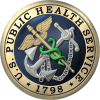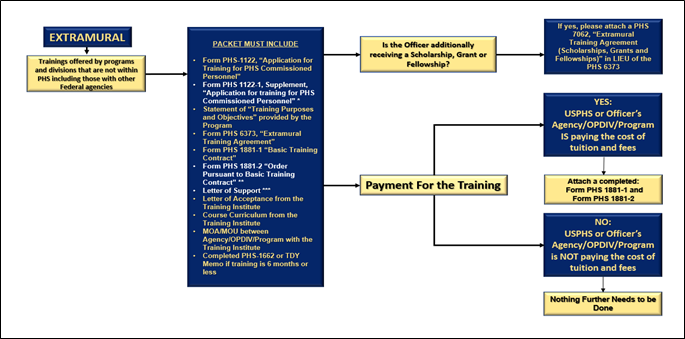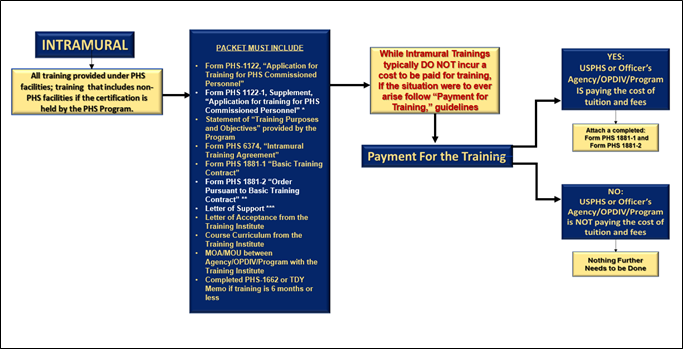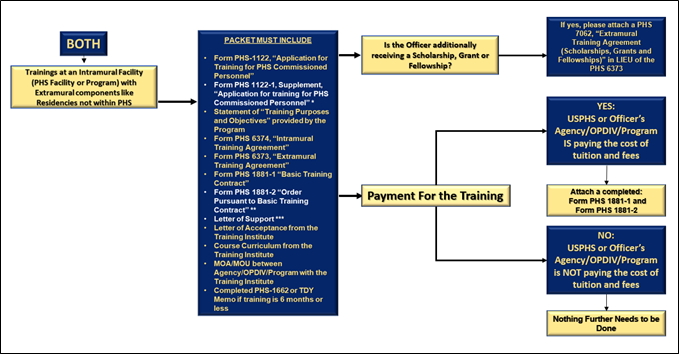-
- About ASB Main Page
- Deployment Travel and Travel Readiness
- Frequently Asked Questions
- Government Travel Charge Card
- Household Goods Officers
- Important Regulation Changes
- Junior COSTEP Travel Information
- Links
- Official Travel Forms
- Permanent Change of Station (PCS)
- Servicemembers Civil Relief Act (SCRA)
- Table of Frequently Used Acronyms
- Temporary Duty Assignments (TDY)
- Transportation
- Travel and Transportation
- Travel and Transportation Allowances FAQ
- Travel and Transportation Entitlements Summary
- Travel, PCS and Transportation
- Important Regulation Changes
- Travel & Transportation Entitlements Summary
- Permanent Change of Station (PCS)
- Temporary Duty (TDY)
- Junior COSTEP Travel Information
- Official Travel Forms
- Household Goods Officers
- Transportation
- Government Travel Charge Card
- Table of Frequently Used Acronyms
- Servicemembers Civil Relief Act
- Links
- Travel and Transportation Allowances FAQ
- Personnel & Career Management
- Licenses and Transcripts
- Licensure Overview and FAQs
- Transcripts FAQs
- Leave
- eCORPS Information
- Officer Leave and Absence Request FAQ
- Practice Hours
- Practice Hours FAQs
- Practice Hours User Guide
- Practice Hours Opportunities
- Long Term Training
- Extramural and Intramural Training FAQs
- Training Forms
- About Policy
- Commissioned Corps Issuance System
- Commissioned Corps Legislative Liaison Program (CCLLP)
- Equal Opportunity
- Frequently Asked Questions
- Political Restrictions
- Promotion Ceremony Protocol (PDF, 126kb)
- SGHG Drill and Ceremonies Manual (PDF, 3.39mb)
- Uniform Specifications
- PHS Hard Shoulder Boards and Sleeve Insignia (Male and Female) (PDF, 828kb)
- PHS Soft Shoulder Marks (Unisex) (PDF, 324kb)
- Physical Training Uniform (PTU)
- Deployment Information
- Deployment Handbook
- Operations and Deployment
- On-Call Schedule
- Deployment Awards
- Other Resources
- About the Training Branch
- Training Dates
- Career Pathways
- Webinars
- Career Development Trainings
- Officer Basic Course (OBC)
- Officer Intermediate Course (OIC)
- Preparedness Trainings
- Military Facility Annual Training (MFAT)
- Partner Trainings
- Army War College (AWC)
- Interagency Institute for Federal Health Care Executes (IAI)
- Capstone Leadership, Education, Analysis, Development, Sustainment (LEADS)/Joint Medical Executive Skills Institute (JMESI) Course
- Command and General Staff Officer Course (CGSOC)
- Defense Advanced Research Project Agency (DARPA)
- Joint Medical Executive Skills Institute (JMESI) Intermediate Executive Skills (IES)
- Office of National Drug Control (ONDCP)
The USPHS Commissioned Corps is committed to our mission to protect, promote, and advance the health and safety of the nation. Public Health Service officers are trained and equipped to provide crucial public health leadership, assist with policy development, advance innovation and science, provide essential care services and respond to national and global public health emergencies. Through our Active Duty Regular Corps, our Public Health Response Strike Team (PHERST) and our Ready Reserve Corps, we remain responsive and available to rapidly deploy in the service of health.
-
Extramural and Intramural Training Frequently Asked Questions (FAQs)
Long Term Training Policies:
CCD125.04.pdf "Fellowship, Scholarships, and Grants"
CCI_325.01.pdf "Extramural and Intramural Training and Obligation"
POM_821.81.pdf "Extramural and Intramural Training"
Long-Term Training
The deadline for submitting Long-Term Training packets is no later than 90 DAYS prior to the start date of the Training. Please submit Long-Term Training packets (with all documents enclosed) in PDF format (not PDF Portfolio) in one message to PHSlongtermtraining@hhs.gov.
No, all Long-Term Training applications are due on or before the 90 days prior to the start date of the HHS-supported training.
The USPHS Commissioned Corps no longer has a list of approved “Participating Intramural Training Programs.” Instead, intramural trainings are all trainings provided under the primary auspices of PHS training facilities or offered by a PHS agency such as the Center on Disease Control (CDC), Federal Drug Administration (FDA), National Institute of Health (NIH), etc. It includes training at PHS facilities that affiliate with non-PHS facilities to provide certain parts of the training, if the certification is held by the PHS program. By contrast, extramural trainings are offered by programs and divisions that are not within PHS or are provided under the sole auspices of non-PHS training facilities, including those offered by other Federal agencies. Such training is extramural even if the Agency/OPDIV/Program regularly partners with the USPHS Commissioned Corps or if the PHS officer has been detailed to the non-PHS program/agency providing the training.
The status of a combined program depends on whether the program is certified under the extramural facility or the intramural one.
All Long-Term Training forms and supporting documents can be found on the CCMIS website: https://dcp.psc.gov/ccmis/forms/FORMS_Training_m.aspx.
Please reference the following Flow Charts for a breakdown of documents needed for a complete Long-Term Training Packet.
**The Addendum must be attached to form PHS-1122-1, “Application for Training for PHS Commissioned Personnel,” when an officer decides to apply for Long-Term Training offered by a Department of Health and Human Services (HHS) Operating Division (OPDIV), Staff Division (STAFFDIV), or by a non-HHS organization to which the officer is not currently detailed or assigned.
** Form PHS 1881-1, “Basic Training Contract,” and 1881-2, “Order Pursuant to Basic Training Contract,” is only attached to the training packet when there is a financial exchange/tuition and the Agency/OPDIV/STAFFDIV is paying the cost of the officer’s tuition and fees to the training institution.
***Prior to the start of the training, a Letter of Support (LOS) between the officer, the USPHS Commissioned Corps, and the Agency/OPDIV/Program in which the officer serves must be signed, that details not only concurrence for the training, but also the agreement on the arrangements for the officer's assignment upon completion of the training. The officer and the Agency’s liaison must sign the LOS. Further guidance can be found in CCI 325.01, “Extramural and Intramural Training and Obligation.”
When applying for Long-Term Training, an officer should follow these steps:
- Review their plans to attend training with their supervisor and collect necessary information pertaining to the school, curriculum, qualifications, tuition, and registration.
- Seek approval from their supervisor and agency.
- If approval is granted, PHS officers complete all applications for training, including applications for Scholarships, Grants, and Awards under 42 U.S.C. § 213a(a)(9) referring to 10 U.S.C. § 2603, on form PHS-1122-1.
- Complete form PHS-1122-1 “Application for Training for PHS Commissioned Personnel” through Item 21.
- The Agency/OPDIV/Program must complete form PHS-1662, “Request for Personnel Action – Commissioned Officer,” requesting entrance to training. The report date on the PHS-1662 must match the start date on the application. CCHQ must receive the PHS-1662 at least 60 days prior to the start of training.
- For Long-Term Training Programs less than 6 months in duration, a TDY Memo must be submitted in the packet, by the Agency Liaison, in lieu of the PHS-1662.
- Each officer who is selected for training (Long-Term or Short-Term) must work in collaboration with their agency Liaison to:
- Make all necessary arrangements for admission to the approved educational institution or training program to which application is made.
- Immediately after the officer is accepted into the training program, and the training has been approved by the sponsor, the officer must inform their official supervisor and the Training Coordinator, CCHQ about the acceptance, the institution where the training will be provided, the amount of the tuition and fees involved, and the officer’s address while in training.
- The officer must provide this information even if the USPHS Commissioned Corps is not funding the training.
- Notify the USPHS Commissioned Corps Liaison as the sponsor so they can execute a Basic Training Contract (see hyperlink below) with the training institution.
- The Liaison must send a copy of this contract to the sponsor’s payment department and to the Training Coordinator, CCHQ
- As applicable/if the agency is funding the training, obtain and deliver form PHS-1881-2, “Order Pursuant to the Basic Training Contract,” to the institution (see hyperlinks below).
- As applicable, complete and compile all forms (hyperlinked) and documents listed below:
- Training Purposes and Objective
- PHS 6373 Extramural Training Agreement
- PHS 6374 Intramural Training Agreement
- PHS 1881-2 Order Pursuant to Basic Training Contract
- PHS 1881-1 Basic Training Contract
- PHS 7062 Extramural Training Agreement (Scholarships, Grants, Fellowships)
- Letter of Support
- Prior to the start of the training, the officer, the USPHS Commissioned Corps, and the Agency/OPDIV/Program in which the officer serves, must agree to a Letter of Support (LOS) on the arrangements for the officer's assignment upon completion of the training.
- The LOS will specify how long the officer must remain at the Agency/OPDIV/Program funding the training before the USPHS Commissioned Corps will consider a request for a new assignment (unless the Agency/OPDIV/Program consents to the move).
- The USPHS Commissioned Corps agrees not to transfer the officer (without the approval of the Agency/OPDIV/Program) for the duration specified in this LOS unless the Director, CCHQ, decides such a move would be for the good of the USPHS Commissioned Corps.
- This time commitment in the LOS is separate from the officer’s Active-Duty Obligation (ADO) to the USPHS Commissioned Corps and can be a shorter or longer period depending on the agreement.
- Memorandum of Understanding (MOU)
- CCHQ requires an MOU between the Program/Agency and the training site unless the Program/Agency runs the training. This agreement spells out the expectations of both parties for the training. MOUs cannot be between the training site and the officer.
- The MOU will be provided by the Agency Liaison in all cases. The only time CCHQ will provide the MOU is for specific trainings—the Agency Liaison will be notified by CCHQ if that is the case.
- Ethics Clearance
- CCHQ will seek ethics approval from the Ethics Division of the Office of General Counsel (OGC) for those officers entering into training programs. OGC must clear all training agreements. Officers who fail to submit and/or obtain a favorable ethics clearance may be subject to disciplinary actions in accordance with CCD 111.02, “Disciplinary Action.”
- Agencies may additionally opt to get concurrence from their respective Ethics Boards. This will be viewed as supplemental/additional.
- Long-Term Training packets will not be cleared for routing until OGC Ethics has given their decision.
- Course Curriculum
Before the start of the training, the officer, the USPHS Commissioned Corps, and the Agency/OPDIV/Program in which the officer serves must agree on a Letter of Support (LOS) that includes the arrangements for the officer's assignment upon completion of the training and how long the officer must stay at the Agency/OPDIV/Program funding the training before the USPHS Commissioned Corps will consider a request for a new assignment (unless the Agency/OPDIV/Program consents to the move). The USPHS Commissioned Corps agrees not to transfer the officer for the duration specified in this LOS unless the Director, CCHQ, decides such a move would be for the good of the USPHS Commissioned Corps. This time commitment is separate from the officer’s ADO to the USPHS Commissioned Corps and can be a shorter or longer period depending on the agreement.
Officers can take additional courses or training programs, either online or in-person, on their own time, at their own expense, as long as this does not interfere with their USPHS Commissioned Corps’ duties. There is no ADO for training funded by the officer. However, training funded by outside fellowships, scholarships, or grants incurs an ADO of three times the length of training even if neither the USPHS Commissioned Corps nor the Agency/OPDIV/Program provides any funding. (See CCD 125.04 “Fellowships, Scholarships, and Grants”.) The USPHS Commissioned Corps encourages officers to consult with their agency’s Ethics department to determine if a conflict of interest exists while accepting a scholarship/fellowship/grant. Officers must inform the USPHS Commissioned Corps’ training coordinator and their work supervisor in writing that they are taking this training, the estimated hours per week the training will take, and their expected date of completion. At the end of their training, they should add this training to their CV.
CCHQ requires training sites to sign a Memorandum of Understanding (MOU) between the Program/Agency and the training site. This agreement spells out the expectations of both parties for the training. (See Appendix B for a sample MOU.)
Once completed, the officer must forward their Long-Term Training packet to their Commissioned Corps Liaison who will then, after reviewing the packet for completeness, submit it to Commissioned Corps Headquarters (CCHQ) for final approval. Please ensure that all packets are complete, and all necessary signatures have been obtained. Incomplete packets will result in a delay for processing while incomplete/missing information is obtained from the officer/Agency Liaison; CCHQ cannot guarantee packets will be routed for approval in time.
If an officer is requesting an extension of training for less than 90 days, the Liaison must submit the request in writing.
If an officer is requesting an extension of training for more than 90 days, the Commissioned Corps Liaison needs to revise and resubmit the training application.
CCHQ will inform the Commissioned Corps Liaison in the OPDIV/STAFFDIV or Program when the training application request has been approved by the Director, CCHQ.
Some reasons for non-approval are:
- Lack of agency funding
- Disciplinary action in the officer’s file
- Missing COER
- No current license on file in CCHQ (if required for Commissioning)
- Not Basic Ready
- Change in medical condition of an officer that would prevent him/her from fulfilling payback
Short-Term Training
Short-Term Training includes:
- Full-time training that does not exceed 30 consecutive days nor a total of 90 calendar days in a fiscal year.
- Part-time training that does not exceed 70 hours in attendance in a 30-day period, nor a total of 210 hours in attendance in a fiscal year.
Officers must submit an application (SF-182, “Authorization, Agreement, and Certification of Training”) for Short-Term Training. Officers attending short-term training should work in collaboration with their Liaison to submit documentation, specifically the PHS-1881-2 “Order Pursuant to the Basic Training Contract,” to the training coordinator at CCHQ if the training incurs an ADO.
The USPHS Commissioned Corps has delegated the authority to approve Short-Term Training for Commissioned Officers to:
Directors of Principal Staff Offices and divisions within the Office of the Assistant Secretary for Health, without authority to redelegate; and
HHS agency and OPDIV heads, and heads of non-HHS organizations and programs, with authority to redelegate.
The officials who have the authority to approve applications for Short-Term Training will, after taking action on an application, send the original to CCHQ.
The USPHS Commissioned Corps will manage funded part-time online training in the same way that it manages funded part-time in-person training. The officer must obtain permission from their supervisor if the officer will use equipment from their duty station (or at-work time) for the online assignments. The USPHS Commissioned Corps or the Agency/OPDIV/Program will encourage officers to find ways to link their training assignments with their work duties. When officers finish their online training they return to full-time work.
POM 821.81, “Extramural and Intramural Training”
To be considered for training, an officer must meet the readiness standards by not having been marked as “not qualified” in the last year, have the Commissioned Officer’s Effectiveness Reports (COERs) for the last five years, and must not have an active Administrative Action (such as a Letter of Reprimand with an end date within a year or a pending non-medical board hearing).
Officers must also have on file forms DD-2807-1, “Report of Medical History,” and DD-2808, “Report of Medical Examination,” that are no older than one year. They must have a Letter of Support (LOS) between the officer, the USPHS Commissioned Corps, and the Agency/OPDIV/Program in which the officer serves, that details the agreement on the arrangements for the officer's assignment upon completion of the training.
The USPHS Commissioned Corps has delegated the authority to approve short-term training for commissioned officers to: directors of Principal Staff Offices and divisions within the Office of the Assistant Secretary for Health; and HHS agency and OPDIV heads, and heads of non-HHS organizations and programs. The Agency/OPDIV/Program where the officers work will process applications for long-term training. They will forward applications for extramural academic training to the training coordinator, CCHQ (to arrive at least 90 days prior to the start of training). They will send applications for residency to CCHQ at least 90 days prior to the start of training. The Office of General Counsel Ethics Office will review each application.
Officers assigned to Long-Term Training, which was originally approved for more than one year, need not formally reapply to continue the training each year. However, they must prepare a statement for their Agency/OPDIV/Program indicating a desire to continue the training and a statement from the appropriate program official recommending for or against continuation.
An Active-Duty Obligation is the period that an officer is obligated to serve on active duty in return for service support of long-term training or other extramural education activities. Officers serve the ADO to the USPHS Commissioned Corps at the agency that sponsored their training.
CCHQ will track trainings with ADOs. Officers must submit the following information to the CCHQ training coordinator within 60 days of the start of the program:
- PHS officers entering Long-Term Training programs must submit PHS-6373, “Extramural Training Agreement.”
- PHS officers who obtain a Fellowship, Grant, or Scholarship must submit PHS-7062 “Extramural Training Agreement (scholarships, grants, fellowships).”
- PHS officers entering Short-Term Training program must submit PHS-1181-2 “Order Pursuant to the Basic Training Contract.”
An officer seeking to separate from the USPHS Commissioned Corps without penalty, despite not completing their ADO, may submit a waiver request to the head of the officer’s Agency/OPDIV/Program. All requests for waiver must include Form PHS-1373 and the information in POM 821.81. Section 9. The request must arrive at CCHQ at least 60 days in advance of the officer’s release date.
If all the training takes place in an intramural facility, the officer will incur no ADO. Even if the training takes place in an intramural program that uses external facilities as part of its accredited program, the officer will incur no ADO, as long as the certification is under the name of the intramural program.
However, if the officer is undertaking a period of extramural training that uses an intramural facility as part of the program accredited under the name of the extramural program, then when the total period of training is 30 days or less, the officer will incur no ADO. Otherwise, the officer will be obligated to serve on active duty with the USPHS Commissioned Corps for six months or twice the official length of the program as accredited by the approving body (not how long it took the officer to complete it), whichever is greater.
No, CCD 125.04 only applies to fellowships, scholarships, or grants that come from a corporation, fund, foundation, or educational institution. If the fellowship, scholarship, or grant is funded by the USPHS Commissioned Corps or by a government Agency/OPDIV/Program (other than a government educational institution) then CCD 125.04 does not apply. Officers and CCHQ should look to the source of the funding and whether the training program would have required the student to pay (or arrange funding from another source) without the fellowship, scholarship, or grant.
Last Updated: 09/03/2025
-
USER ASSISTANCE
Please check our Frequently Asked Questions (FAQs) . FAQs are located at the top of the page next to the search function.
Having Access Issues or Need IT Help? Please contact the Commissioned Corps Helpdesk at: CCHelpDesk@hhs.gov
COMMISSIONED CORPS NEWS
Officer Spotlight September 2025
Officer Spotlight
Practice Hours Opportunities
Practice Hours Opportunities
2023 Temporary Grade Promotions
CC News Announcement 2023 Temporary Grade Promotions
Changes in Tattoo Policy in CCI 412.01, Uniforms and Appearance
Changes in Tattoo Policy in CCI 412.01, Uniforms and Appearance
Surgeon General Priorities
Surgeon General Priorities
January 2021: United States Public Health Commissioned Corps Doctrine
The link above will take you to the Noncompetitive Promotion Roster for Promotion Year 2020.
FAQs Practice Hours and Special Pay Changes
This is first in a series of FAQs, more FAQs will be forthcoming on Practice Hours and Special Pays.
Coronavirus Disease 2019 (COVID-19) Mission - Deployments Readiness Updates
As we position ourselves to assist with controlling the spread of the Coronavirus Disease 2019 (COVID-19), please note that we’re in an “all-hands on deck” status. Messaging has gone out from the Assistant Secretary for Health reminding Commissioned Corps officers of their deployment responsibilities...
Protecting, Promoting and Advancing the Health and Safety of Our Nation. Commissioned Corps Headquarters
1101 Wootton Parkway, Suite 300
Rockville, MD. 20852
240-453-6000-
COMMISSIONED CORPS- Home
- Contact Us
- About Us
- Site Map
-
U.S. DEPARTMENT OF
HEALTH AND HUMAN SERVICES- HHS Home
- Office of Assistant Secretary for Health
- Office of the Surgeon General
- USPHS.gov
-
U.S. GOVERNMENT- The White House
- USA.gov
- USAJOBS.gov
- DATA.gov
-
ADDITIONAL INFORMATION- Plain Writing Act
- Accessibility
- Privacy Notice
- Freedom of Information Act
- Disclaimers
- Vulnerability Disclosure Policy

-
COMMISSIONED CORPS OF THE
U.S. PUBLIC HEALTH SERVICE® - CCMIS


